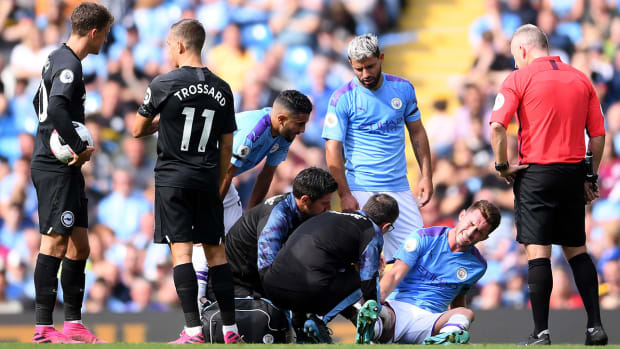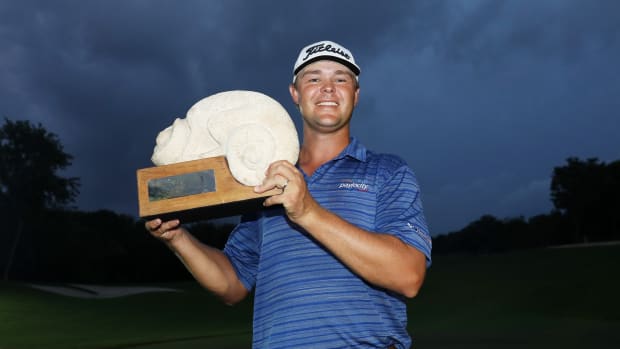Alberto Salazar hits back hard at doping allegations
EUGENE, Ore. (AP) The U.S. Anti-Doping Agency has launched an investigation into allegations that famed track coach Alberto Salazar encouraged Olympic silver medalist Galen Rupp and others in his stable of elite runners to skirt anti-doping rules, The Associated Press has learned.
A person with knowledge of the investigation told the AP on Wednesday that more than a dozen witnesses have been interviewed and USADA is actively pursuing documents and other evidence from Salazar, who coached Rupp to second place in the 10,000 meters at the London Olympics. The person spoke on condition of anonymity because anti-doping investigations are considered confidential.
A story by ProPublica and BBC earlier this month contained allegations from former Salazar assistant Steve Magness and a former Salazar runner, Kara Goucher, that Salazar skirted the rules. Salazar responded Wednesday by publishing a 12,000-word letter online disputing the allegations, saying the Oregon Project he leads ''will never permit doping.''
USADA spokeswoman Annie Skinner released a statement that said, ''USADA takes all reports of doping seriously and we aggressively follow up on all information we receive in order to fulfill our oath to protect clean athletes and the integrity of competition.'' Her statement did not directly mention Salazar.
Salazar's key sponsor, Nike, released a statement, saying the company had conducted its own internal investigation and found no evidence to support the doping allegations.
The 56-year-old track coach, who won the 1982 Boston Marathon and the New York Marathon three straight times from 1980-82, went public to clear his name on the eve of U.S. championships in Oregon, where Rupp is scheduled to go for his seventh straight national title at 10,000 meters.
In his letter, Salazar said Goucher suffers from the same thyroid disease as Rupp, and that she introduced Rupp to the first endocrinologist who treated him. Thyroid medication is not banned under anti-doping rules, though there's some evidence that it can help improve performance.
Salazar also implies Magness was jaded because he was fired from the Oregon Project in 2012, and that while Magness ''makes a number of inflammatory and false statements about the Oregon Project and me personally, at no point does he allege that any doping violations occurred while he was with the Oregon Project. That's because none did.''
It is a lengthy, detailed screed by arguably the world's most powerful long-distance running coach - one that comes after nearly a month's worth of almost-daily doping allegations that have come out since the BBC-ProPublica story.
Salazar disputes them all, both in general terms - ''The Oregon Project will never permit doping and athletes must fully comply with the WADA Code and IAAF Rules'' - and in very detailed, specific ways.
Notably, Salazar said Rupp has received only two therapeutic-use exemptions for the asthma medicine prednisone and none since 2012. That runs contrary to claims in the BBC story that the 29-year-old took the medicine continuously since he was 15. At nationals in 2011, Rupp famously ran wearing a mask to limit his pollen intake. Salazar writes he did that because he had not yet received clearance for a TUE for prednisone.
Salazar also took exception to a sentence in the story that implied Project Oregon athletes were required to have prescriptions for asthma and thyroid medication. He said 9 percent of his athletes were diagnosed with a thyroid condition after he started coaching them. He said 14 percent have been diagnosed with exercise-induced asthma, which is below the average on some recent U.S. Olympic teams.
Another of Salazar's runners, two-time Olympic champion Mo Farah, was caught up in the aftermath of the BBC story, even flying to Salazar's home base in Portland, Oregon, to get everything straightened out. The British runner, not implicated in any of the allegations, routinely trained with Rupp.
USA Track and Field CEO Max Siegel said in an email to AP that he's been following the situation, but that ''it's under the authority of USADA. ... We are confident in their work and oversight.''
Neither Salazar nor Goucher immediately responded to AP requests for comment.
Salazar devoted significant space to explaining his relationship with Goucher and her husband, Adam, also an elite distance runner.
Kara Goucher told the BBC that when she ran for Salazar, he encouraged her to take the thyroid drug Cytomel to lose weight in 2011 after the birth of her son. She said Salazar knew she did not have a prescription for Cytomel.
In his letter, Salazar said he was ''thrilled with Kara's weight, body composition and fitness in 2011.'' He added that his issues were with her husband, a former runner in his group with whom he had a falling out. Salazar said Adam played a bigger role in his wife's training and travel, with Salazar saying in the letter, ''In the end, I could not coach her if Adam was involved.''
Salazar's rebuttal comes a day before Rupp returns to Hayward Field, where he rose to fame as a runner for the Oregon Ducks.
''I'm confident it will get sorted out,'' said Vin Lananna, the president of TrackTown USA and Rupp's former coach at Oregon. ''I know Galen pretty well and Alberto pretty well. I believe our fans will focus their attention on the business at hand - and that's a great 10,000 meters.''
---
Online:
Salazar letter: http://nikeoregonproject.com/blogs/news




